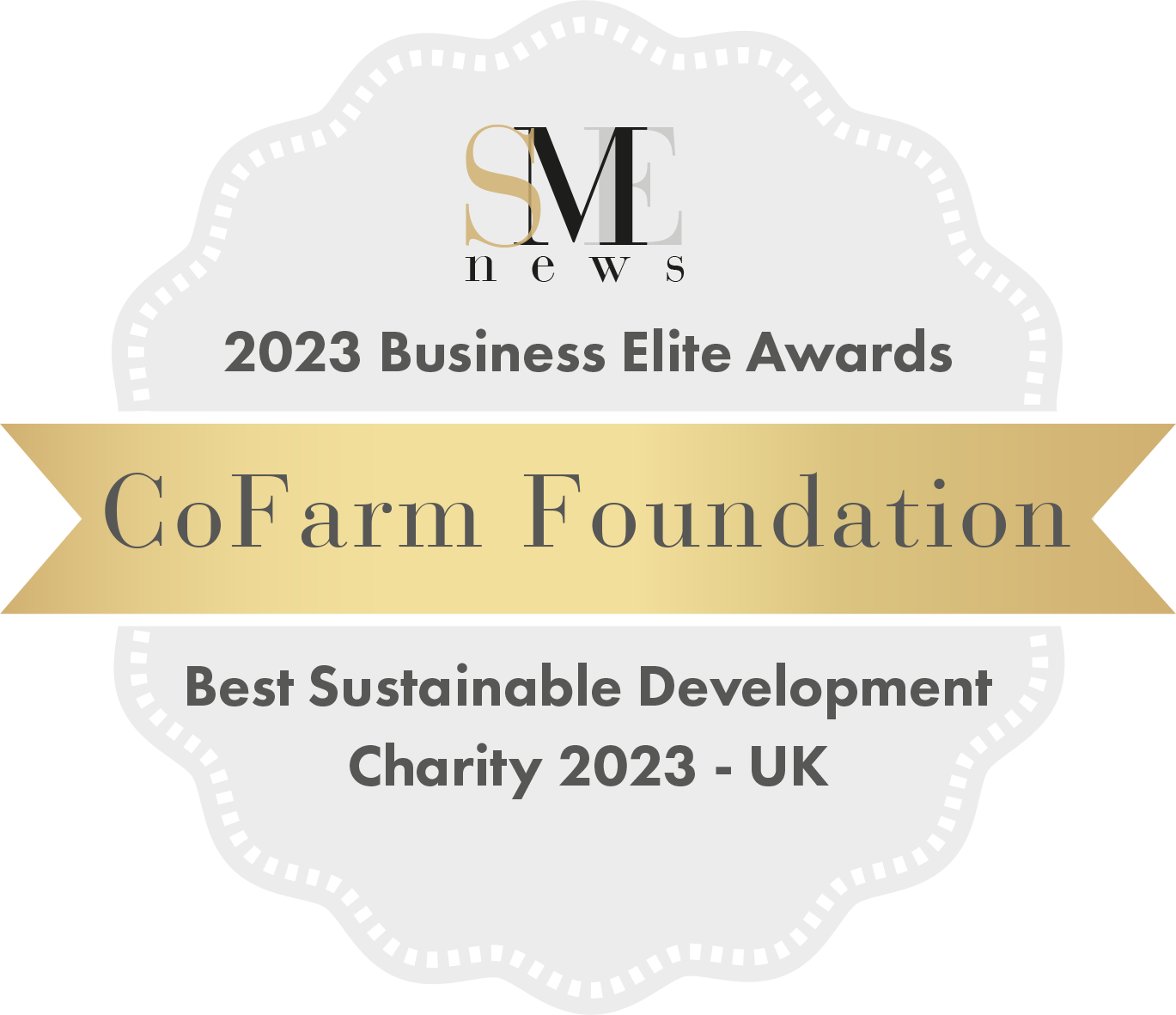When you farm in harmony with nature, you produce tastier, safer and healthier food that doesn’t cost the Earth.
Bee enjoying the phacelia cover crop at CoFarm Cambridge.
Nature provides
Only in relatively recent years has our society started to rediscover, understand and acknowledge just how much we depend on the rest of the natural world for our own survival.
When it is functioning well, nature provides us with shelter from storms and floods, prevents our climate from warming to dangerous levels and provides us with the very oxygen we breathe. One in three mouthfuls of food that we eat could not have been produced without the services of bees and other wild pollinating insects which pollinate our crops.
Agriculture, primarily via its contribution to habitat and ecosystem destruction, is one of the main causes of biodiversity loss. This is now occurring at around 1,000 times the background extinction rate.
If future human generations are to be able to sustain themselves, then we need to farm in harmony with nature today.
Healthy soils
According to the Soil Association, 95% of the food we eat comes from soil.
Healthy soils store water, helping to prevent droughts and floods. They capture carbon dioxide from the atmosphere and store it as soil organic carbon - playing a major role in tackling climate change. Currently one third of the world’s soils used for growing food are degraded, meaning their ability to perform these vital services is reduced. And with just one centimetre of topsoil taking around 1,000 years to form, we must all play our part in caring for and regenerating our soils.
We are committed to using regenerative farming practices that build and maintain healthy soils. We understand that the diversity of life that soils support and our own health, is directly and inseparably linked to the health of our soils.
Soil sampling on World Soil Day in 2019. CoFarm Cambridge.
Vegetables grown according to agroecological principles at CoFarm Cambridge.
Agroecology
“Agroecology is an integrated approach that simultaneously applies ecological and social concepts and principles to the design and management of food and agricultural systems. It seeks to optimise the interactions between plants, animals, humans and the environment while taking into consideration the social aspects that need to be addressed for a sustainable and fair food system”.
The Food and Agriculture Organisation (FAO) of the United Nations
We are establishing CoFarm as a vehicle to drive more widespread adoption of agroecology in communities throughout the UK. We are committed to implementing, and being guided by, the, ‘10 elements of agroecology guiding the transition to more sustainable food and agricultural systems’. (Opens as a PDF on the UN FAO’s website.)







